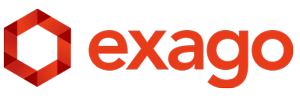Exago has partnered with KPMG in Portugal to promote the first global ‘Innovation Survey’ to companies operating in the country. Survey findings show how companies that systematically pursue collaboration opportunities have a significantly higher rate of commercially successful product launches and nearly twice as much revenue growth.
Three hundred participants at the European level took part in the survey, 39 of which were from Portugal. Overall, KPMG’s analysis concluded that good innovators in organisations with a budget allocated to innovation strategy and an idea management solution in place also have the largest share of revenue coming from successful new products launched in the last three years.
The data reveals as well that investing in product development and enhancement impacts positively on revenue growth. Yet it’s interesting to see how companies that focus on innovation to find new sales channels and on customer experience and satisfaction improvement have benefited from even higher revenue growth rates in the last three years (> 5%).
However, where innovation is concerned, the journey for companies is still a long one. There is a lack of well-structured innovation management processes to stimulate it and a lack of experience, as the battle to recruit talented innovators is growing.
The survey includes an in-depth analysis and insights from KPMG’s global experts and Exago’s CEO on subjects such as:
- How is idea management structured?
- Why is collaboration needed?
- Where do companies focus their efforts, how do they finance innovation and what are the companies’ challenges?
- How are corporates responding to the drivers of innovation and positioning their strategies?
- What separates good from bad innovators?
You can check out Portugal’s results here. A short summary is also available below in English.
KPMG INNOVATION SURVEY 2016 – EXECUTIVE SUMMARY
‘1. Collaboration is crucial to success
Companies that systemically search for collaboration opportunities secure a higher success rate for their products and almost double the increase in income.
2. The building of broader innovation skills demands a more complex transformation process
In spite of evidence that supports the focus on collaboration efforts, only a few companies enjoy effective collaboration, as it requires a complex transformation process at both a cultural and an operational level.
3. Business model innovation offers significant opportunities in a world dominated by innovative products
The main focus in all industries is product development and improved process development. However, the creation of new selling channels, alternative income models and the discovery of new or present needs might have the same level of impact as the innovation of the company’s main functions and the product itself.
4. The war for talented professionals is ongoing
Most of the time, the main challenge that companies face in terms of innovation is related to lack of people with the required competences and the necessary experience.
5. Fine innovators have an implemented innovation policy
Companies that have implemented process management and innovative governance models enjoy a high rate of success with their products and a significant share of their income comes from products launched in the past three years. However, only 16% of companies use this approach in the management of their innovation programmes.
6. In spite of the importance of commercial deadlines, the inability to meet deadlines is where most projects fail
Meeting deadlines in the project’s chronogram is the main challenge of ongoing projects, with about 30% of projects falling behind schedule. The speed of commercialisation is particularly important as it can generate a competitive advantage.
7. Collaboration is anchored to your comfort zone
Research and Development (R&D) collaborations are particularly important, even if companies often find themselves limited to only business partners. Collaboration with universities, start-ups and incubators is much less common. Different kinds of collaboration partners have different strong points and contribute with different skills and resources. For that reason, diversifying collaboration partners offers more opportunities than maintaining a single collaboration with only one type of partner’.
